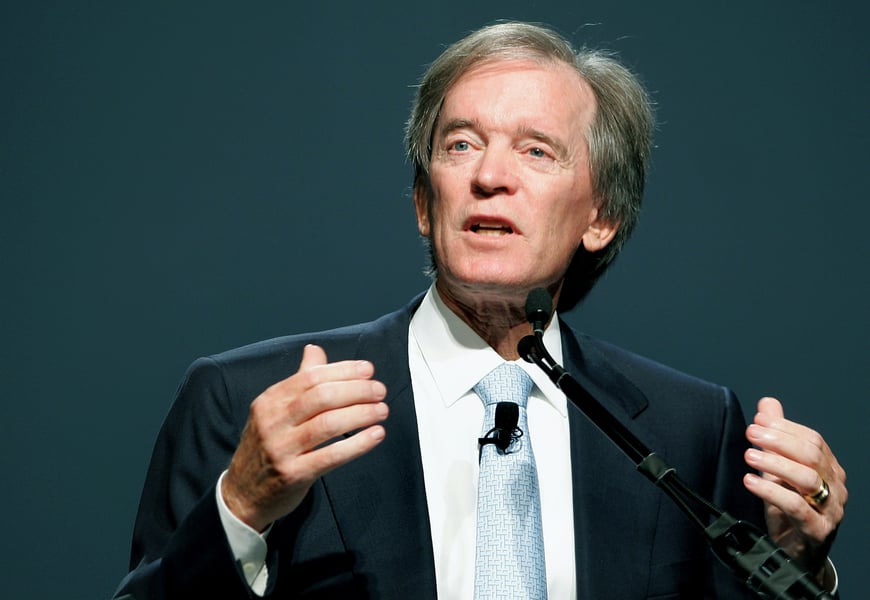Pacific Investment Management Co., manager of the world's largest mutual fund, is raising at least $1 billion for a private fund to buy troubled loans from banks divesting assets to meet new rules, said two people briefed on the plans.
The Pimco Bravo fund, short for Bank Recapitalization and Value Opportunities, will acquire commercial and residential mortgage loans and other debt, according to a prospective investor who asked not to be named because the capital raising is private. Pimco plans to work with a loan servicer to renegotiate the terms of the acquired debt directly with creditors, the client said.
Financial institutions are selling assets after the 27-nation Basel Committee on Banking Supervision adopted standards in September that will more the double the ratio of capital banks must hold in relation to the amount of risk on their balance sheets. Pimco, the Newport Beach, California, firm best known for its fixed-income mutual funds such as those run by Bill Gross, has raised at least $5 billion from institutional clients to buy distressed mortgages and bonds backed by real estate loans since the global credit crisis began in late 2007.
“Valuation is in Pimco's wheelhouse, and valuation is really the main challenge to this type of investing,” Geoff Bobroff, an independent fund consultant in East Greenwich, Rhode Island, said in a telephone interview.
The Pimco Distressed Mortgage Fund LP, opened before the peak of the crisis in October 2007, returned 54 percent in the year ended Sept. 30 after losing almost a third of its value in 2008, the investor said. The Pimco Distressed Senior Credit Opportunities Fund climbed 28 percent in the year through September, according to the investor.
‘Problem' Banks
The number of banks considered “problem” lenders by the Federal Deposit Insurance Corp. rose even with the economic recovery, as bad loans remained on balance sheets. The FDIC's list increased 7 percent in the second quarter to 829 banks.
Pimco's institutional fund will target smaller lenders and community banks, and won't buy consumer debt such as credit-card and auto loans, the investor said. Mark Porterfield, a Pimco spokesman, declined to comment.
“Pimco is using a very wise combination of strategies to take advantage of dislocations in the banking system,” Eric Petroff, director of research at consulting firm Wurts Associates in Seattle, said in a phone interview.
Dozens of money managers have opened funds to invest in mortgage-related credit to take advantage of cheap prices since that market started unraveling three years ago. Most, like Pimco Bravo, are targeted to institutional investors such as pension funds and endowments.
Cargill, DoubleLine
An investment unit of Cargill Inc., the Minneapolis-based food producer, said last month it raised $373 million to buy debt assets from banks. DoubleLine Capital LP in Los Angeles, started by former TCW Group Inc. investment chief Jeffrey Gundlach, gathered $79 million for a fund to invest in mortgage- related assets, according to Nov. 2 filing with the U.S. Securities and Exchange Commission. Ken Griffin's Chicago-based
Citadel LLC collected $225 million for a residential-mortgage opportunities fund, according to an August regulatory filing.
Distressed securities are mostly loans and low-rated, high- yield bonds whose issuers are having trouble meeting interest and principal payments. They typically sell below face value, and investors can profit if prices rebound or the securities are swapped for equity in a restructuring.
The instruments plunged in value two years ago, when investors shunned all but the safest government-backed debt after the failures of Bear Stearns Cos. and Lehman Brothers Holdings Inc. Bank of America Merrill Lynch's U.S. High-Yield Distressed Index fell 45 percent in 2008, followed by a record gain of 117 percent in 2009 as the markets rebounded. In the 12 months ended Sept. 30, the index gained 29 percent.
Pimco's Expansion
Pimco, started in 1971 mainly as a U.S-oriented traditional bond shop, has expanded into emerging markets and hedge fund- style strategies. Under Mohamed El-Erian, who was named chief executive officer in late 2007, the firm has opened long-term funds that try to minimize risks from systemic shocks and opportunistic funds that aim to take advantage of temporary market disruptions, such as the distressed-debt vehicles.
Last year, the firm made a push into actively managed equities and exchange-traded funds. The firm's Pimco EqS Pathfinder fund, which invests in undervalued global stocks, will also devote a portion of assets to distressed debt.
Pimco added an advisory arm in 2009 to help clients value mortgage-related investments and other bonds. The division, Pimco Advisory, has won assignments from the National Association of Insurance Commissioners to help assess home-loan investments held by insurers and the Federal Reserve, for which it runs the Commercial Paper Funding Facility program.
PPIP Departure
Pimco, with about $1.2 trillion in assets, was a leading contender to manage the U.S. Treasury's Public-Private Investment Plan before it dropped out last year, citing “uncertainties” about the program's design. PPIP, overseen by eight managers including New York-based
BlackRock Inc., is intended to purchase devalued real estate assets to speed the recovery of financial markets.
A unit of Munich-based insurer Allianz SE, Pimco runs the $255.9 billion Pimco Total Return Fund, managed by Gross. The fund had 39 percent of assets in mortgage-related debt as of Oct. 31, according to the fund company's website.
Bloomberg







